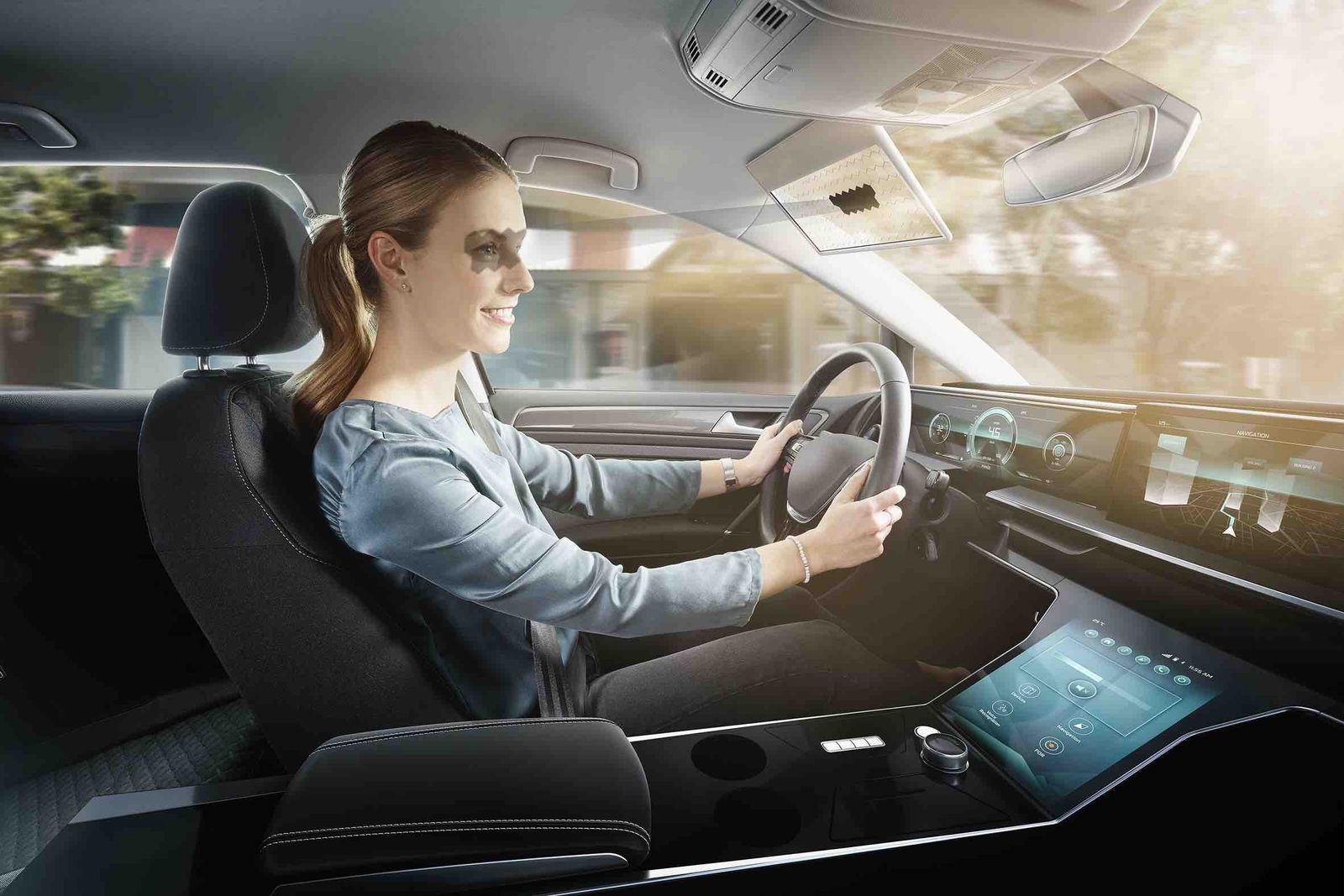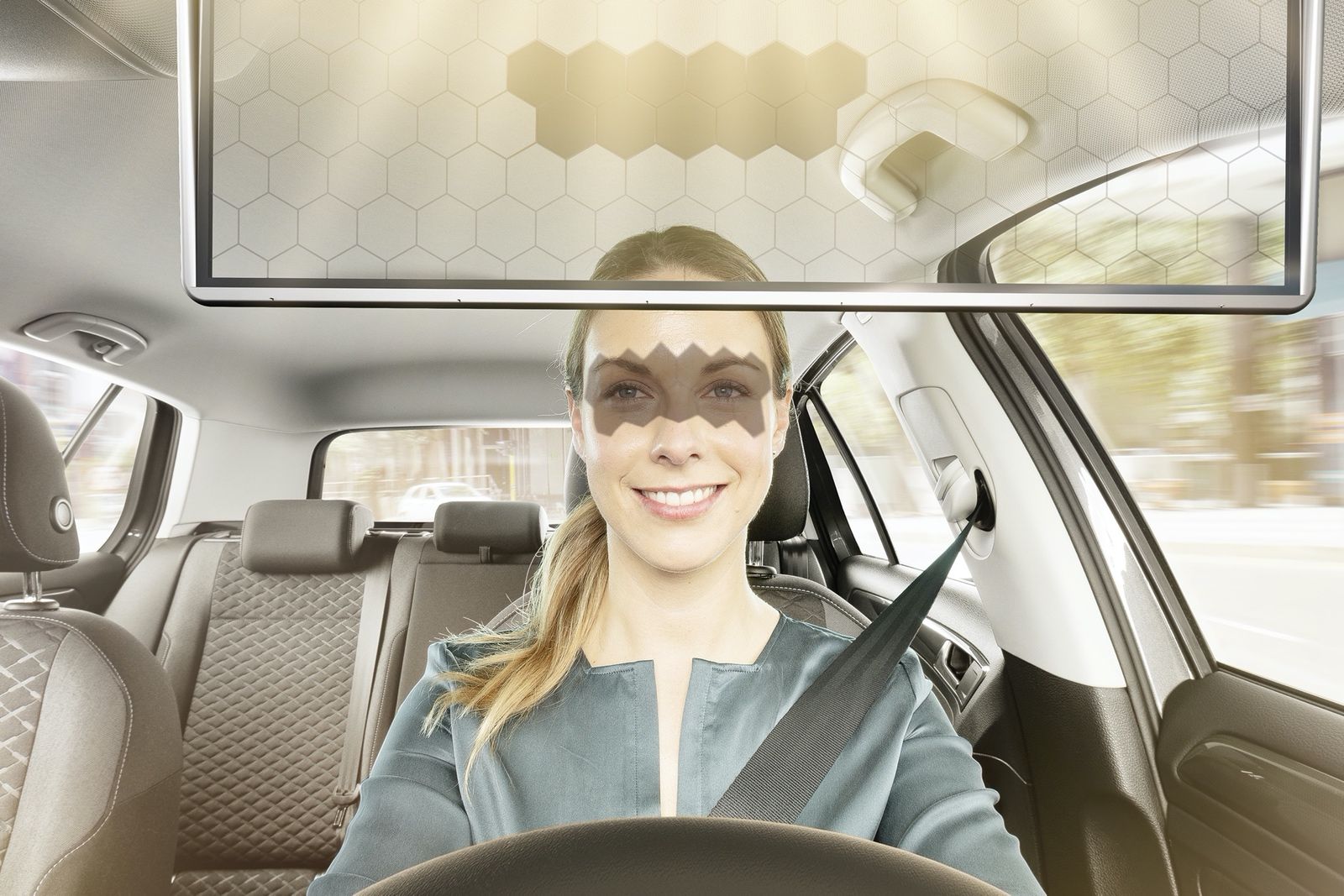Bosch has announced a new piece of technology at CES 2020, that it sees as the eventual replacement for old-school sun visors in cars around the world — its Virtual Visor.
The transparent LCD system uses AI to scan a driver's face, and locate landmarks like the eyes, nose, and mouth, to identify shadows cast on it by the ambient light. It works out the driver's view, and darkens only the parts of its display through which light is hitting their eyes.
This should shield them from aggressive sun glare, without impacting on their view of the road. Any driver can speak to that as an improvement on a simple physical block, provided the system works as claimed.
According to Bosch, the sun causes twice as many car accidents as any other weather-related condition, as drivers are temporarily blinded by glare, or are unable to see fully due to brightness.
The Virtual Visor aims to help with that issue. It uses a driver-facing camera to initiate the scanning mentioned earlier, while the LCD's ability to dim certain sections of itself is down to liquid crystal technology.
Parts of this tech sound a bit like the window technology we first experienced on the debut of the Boeing 787 Dreamliner back in 2014. Its large windows don't feature blinds, instead dimming according to preference right through the glass of the window itself.
While that system was a tiny bit annoying on exactly the occasions when sun glare came into play, powerfully enough to still get through the window's transparency, it makes even more sense in the context of a sun visor.
Being able to still see the whole road while driving is a significant improvement on clumsy sun-blocks. The next question, of course, will be around what cars we'll actually see the Virtual Visor in first.


